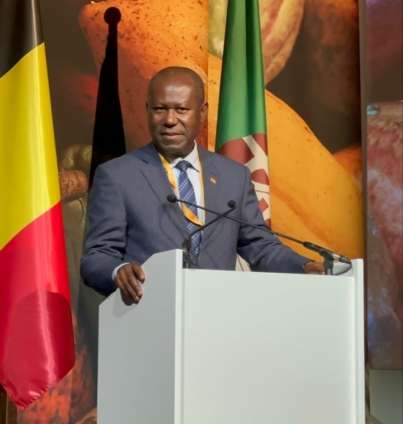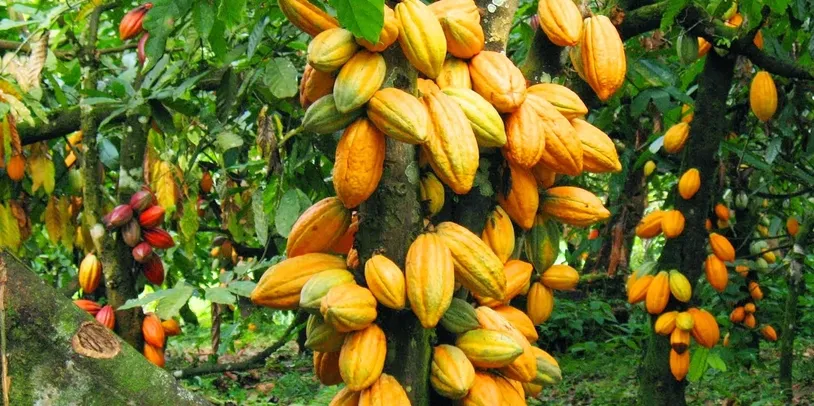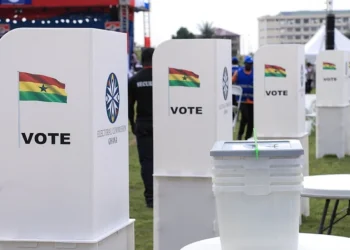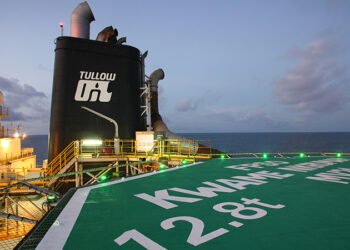As the world pushes for agricultural sustainability, a familiar dilemma surfaces – the intersection of noble aspirations and practical costs.
The Chief Executive Officer of Ghana Cocoa Board, Joseph Boahen Aidoo, raised critical concerns about implementing the new EU Regulations on Deforestation and its cost ramifications to farmers and producing countries.
The recently adopted regulation necessitates that cocoa-producing countries adhere to rigorous measures designed to safeguard the natural environment.
Ghana, even before the advent of the EU Regulations had already commenced and completed the Cocoa Management System (CMS), one of the critical requirements for the cocoa traceability system. However, the CMS would be ready for full roll-out in October this year.
“Ghana is very much aligned to implementing the European Union regulations but this will come at a cost to farmers and producing countries which is likely to increase the cost of cocoa from Ghana, Cote d’Ivoire, and Cameroun”, Mr. Boahen Aidoo emphasized this during a panel discussion at the ongoing World Cocoa Conference in Brussels, Belgium.
“Yes, the regulations are meant to enhance the awareness of sustainable production, but for us we were already bothered about the way climate change was affecting production and disrupting local activities. So even before the idea of the regulations was conceived, Ghana had already started mapping farms which is another element because without the polygon maps you cannot trace the source of the cocoa.
“So now the conclusion is that having done all that, who pays for the cost, right from the polygon maps, bringing in the technology and the training because you need real-time data to make it work. Which means that since this has not been factored in the new EU regulations, the operator has to pay and this is going to make cocoa from Ghana, Cote d’Ivoire and Cameroun very expensive.”
Joseph Boahen Aidoo

Cost of Sustainability
The concerns raised by Joseph Boahen Aidoo, regarding the implementation of the new EU Regulations on Deforestation, highlight complex economic and ethical dilemmas, particularly concerning the burden of compliance costs.
For example, these costs, if solely borne by individual farmers or producing countries, could increase the cost of production, exacerbating the economic challenges faced by farmers already struggling under difficult conditions.
Also, the lack of consideration for these issues within the regulations raises questions about the fairness and practicality of their implementation.
One proposed solution to mitigate the burden on cocoa-producing countries is to share the responsibility with wealthier nations that consume the majority of cocoa produced.
Advocates for this approach argue that developed countries like those in the EU should contribute financially to support producing countries in meeting the requirements for ethically and sustainably sourced cocoa.
This could involve providing financial aid, technology transfer, or technical assistance to offset the costs associated with compliance.
However, if wealthier nations are unwilling to directly shoulder that burden, then cocoa producers should advocate for higher cocoa prices on the international market to make up the difference.
Additionally, there is an opportunity for innovation and collaboration within the cocoa industry to find more cost-effective solutions for sustainable cocoa production.
This could involve leveraging technology such as blockchain for traceability or precision agriculture techniques, to streamline compliance processes and reduce associated costs.
Ultimately, finding a balanced and equitable solution to the challenges posed by the EU Regulations on Deforestation requires careful consideration of the interests and capacities of all stakeholders involved.
By working together and sharing responsibilities, it may be possible to achieve the dual objectives of promoting sustainability in cocoa production while ensuring fair and viable livelihoods for farmers in producing countries.
READ ALSO: Amanda Jissih Lambasts Edward Akwasi Boateng



















